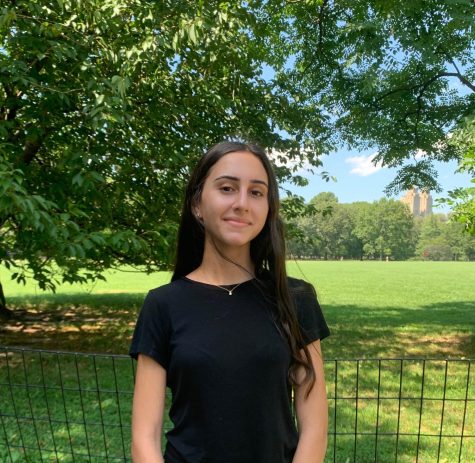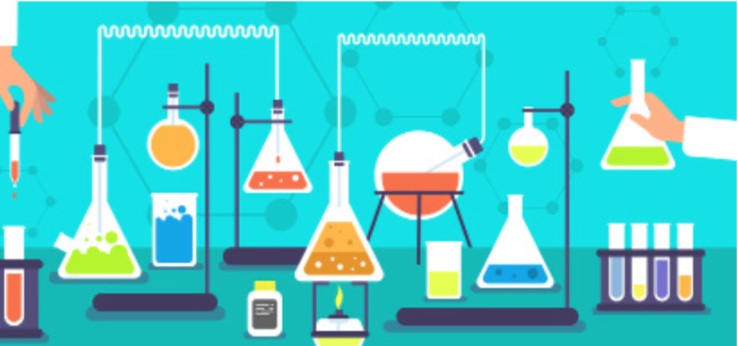Summer Science: How Ramaz Measures Up
Coding classes, hospital internships, lab research. Ramaz students enjoy a myriad of activities over the summer, with many students deepening their exposure to the sciences by partaking in summer science programs that meet their interests. This past summer I chose to explore laboratory research, an area I knew little about, working in a laboratory with students from various schools in and around New York City.
Throughout my experience, I learned a tremendous amount both from my mentors and my peers, but what impressed me most was the knowledge that my fellow high school students brought with them into the lab. Many of them seemed very well prepared for our laboratory experience, as they were familiar with various laboratory techniques that I was not and seemed to be fluent in the language of scientific research. I decided to investigate how Ramaz compared to the schools of three members of my lab in terms of preparing for scientific research summer programs. Ashley Cammiso is a rising senior at John F. Kennedy High School in Belmore, Long Island. At the lab, she demonstrated a strong familiarity with bench research, and noted that her school prepared her very well for her summer science program. Cammiso elaborated that her school offered a class entitled Advanced Science Research (ASR), from which she was able to apply a lot of her teachings to the lab. “I am so grateful for my ASR class because without it I wouldn’t have had as smooth of a transition to my research lab for the summer,” said Cammiso. The ASR class is designed to teach students how to find and connect with mentors for science research and show students how to submit research for competitions. Students are also taught how to read and discuss scientific journals, a skill Cammiso found particularly helpful in the summer program. ASR additionally serves as a forum for students to present their research and learn about the research of others. After four years in ASR, seniors present their accumulated research years, and all other students are invited to attend and learn. In Cammiso’s high school experience, she attended numerous trips designed to expose students to different aspects of science, which, in her words, she “never would have known about.” In addition to touring the facilities at Rejeneron, a pharmaceutical company that conducts research, she went to the LIU Post and took a tour of a hospital and a tour of the lab, the Northwell Health Spark Challenge to see an operating room and witness surgical preparation, and a cadaver lab in LIU Brooklyn. Not only that, but her AP Biology and Chemistry classes, offered before senior year, afforded her exposure to lab techniques which she used in her summer research, including pipetting, measurements, solutions, and even a little coding. Furthermore, JFK High School hosts a STEM and health career fair where different professionals talk about their careers which gave Cammiso the opportunity to hear from a group of surgeons to speak about their careers. Thus, students at JFK High School enter their science programs well prepared to explore.
Isabelle Stemerman, another student in my lab, recently graduated from Greenwich Academy. According to Stemerman, most of her lab experience came from her AP Biology and Microbiology class, where she learned how to use a microscope and conducted many tests on bacteria. Stemerman explained that her school teaches lab techniques as part of the curriculum and ensures that its students feel comfortable in a lab setting. Stemerman worked with worms in a school-run program called Girls Advancing in Stem (GAINS) where students meet during their free time to conduct STEM projects based on their area of interest, and thus felt comfortable working with small organisms in her summer lab. Stemerman said, “In the STEM group there is a forum to talk about your research and hear research from professionals. Also, the GAINS network has a conference every year where we hear about women in science.” Greenwich Academy further holds a career day for seniors, where Stemerman was able to observe both an open-heart surgery and a lung surgery. The students spoke with surgeons and learned about a day in the life of a surgeon. Overall, Stemerman feels that her experience at her school has enabled her to thrive in her summer lab.
Morgan Robinson, a rising senior at Mamaroneck High School, was my third interviewee. Like Cammiso, Morgan has an ASR class at her school. She applied her knowledge from reading journal articles in ASR to her lab work this past summer. “I really enjoyed my summer in the lab and I think knowing how to read a scientific journal really impacted my experience and helped me a lot,” said Robinson. At her school Robinson also gets to listen to older students speak about their research throughout the year. There is a symposium at the end of the year, as well, in which all students are invited to present. The freshmen are influenced by the older students and from their speeches gain an interest in science. The co-curricular activities that Robinson participates in, which also helped to prepare her for her summer research, are robotics club and physics club. Mamaroneck brings its students to compete in seven competitions.
To assess how Ramaz prepares students for research programs compared to other schools, I interviewed Alex Zemmol ’21 to see if he felt prepared for his science research program at Baruch College. Zemmol said he felt prepared for his program and especially appreciated the knowledge obtained from his chemistry classroom with regard to making solutions to the lab. Zemmol also said that in his Ramaz Biology class he used a microscope, so he had a little bit of knowledge as to how to work with one. Zemmol says that he did not go on any trips involving science with Ramaz, but the Honors Chemistry class did go on a trip to a lab at Mount Sinai. As a member of Ramaz’s Pre-Med club, Zemmol gained some slight perspective. He also acknowledged that Ramaz has a Physics and a Robotics club, where students can elect to gain additional scientific exposure. Zemmol noted, “Although it did take me some time to adjust to my summer science program, being that I did not have a lot of experience going into it, I still really enjoyed working in a lab setting and don’t think I was that far behind other kids in the program.”
Overall, when compared to science opportunities afforded at other schools, Ramaz could improve somewhat. A class such as ASR would definitely help students adjust to a lab setting and teach more about scientific research. However, considering that Ramaz offers a dual curriculum, and students already have many extra classes, a class like ASR may not be possible. Additionally, Ramaz does not offer AP level classes before senior year, so students who have taken these higher level classes before may have an advantage in pursuing summer science opportunities. Ramaz does have a very strong science program and offers many co-curricular STEM options. Perhaps introducing ASR as a senior year elective, offering a career fair, or pushing to include more laboratory preparation work into the science curricula are ideas Ramaz should consider to further improve its continually growing STEM exposure for its students.

Caitlin Levine loves journalism, is an avid writer, and is thrilled to be an editor-in-chief of The Rampage. Caitlin has actively contributed to The Rampage...



